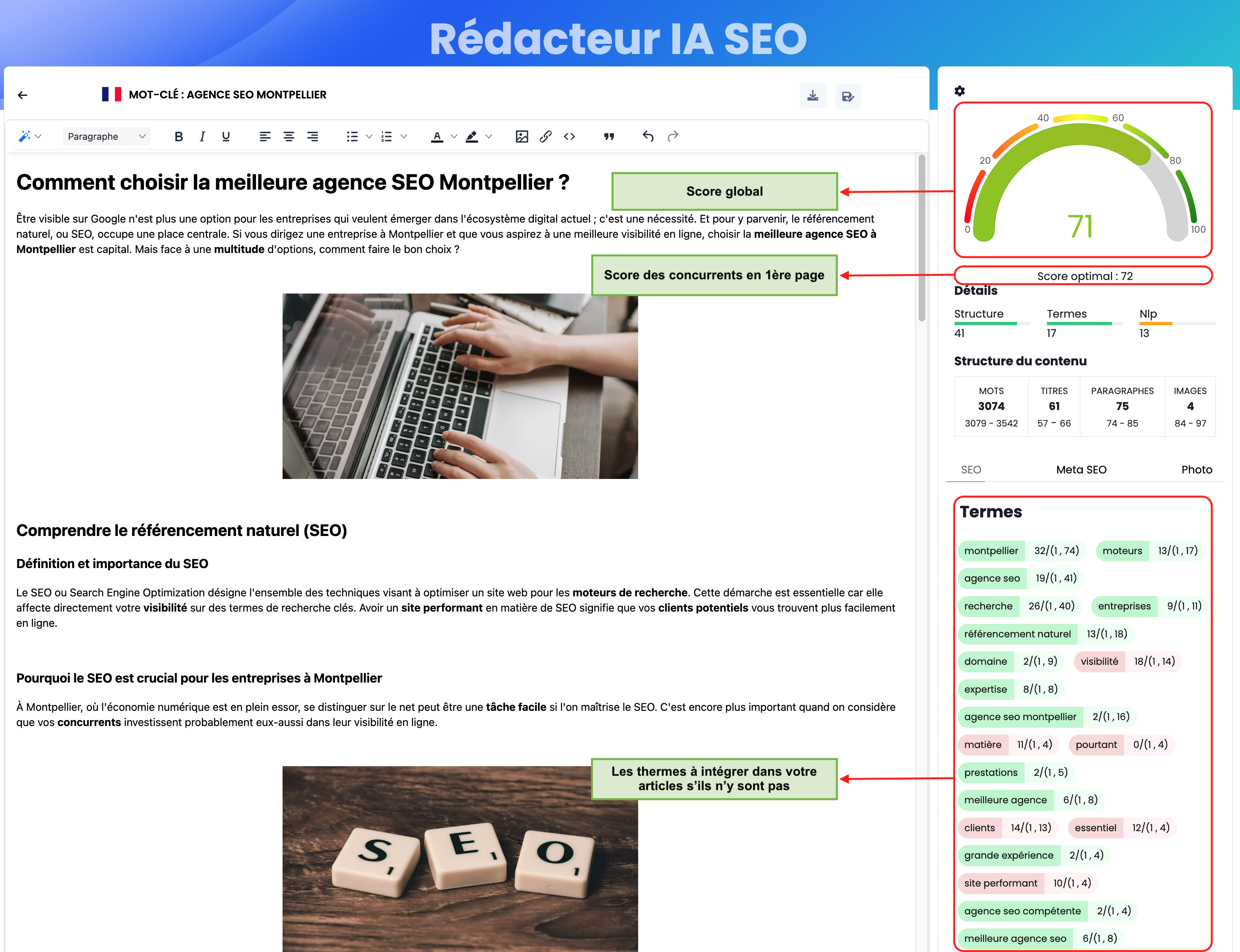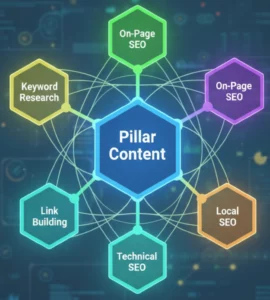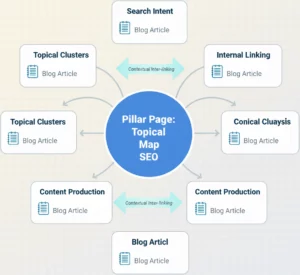
Artificial intelligence (AI) is transforming many of our daily practices, and the field of content creation is no exception to this revolution. In a world where SEO and information relevance reign supreme, AI Writers are becoming crucial tools for bloggers and online content creators. But where do these digital assistants get their information to craft articles that capture readers’ attention? This article explores the behind-the-scenes of AI Writers, their ability to turn raw data into engaging content, and the ethical implications of their use.
Table of Contents
ToggleThe Evolution of Content Creation: The Role of AI
In recent years, a radical transformation has taken place in content creation. AI, with its advanced algorithms and machine learning, has contributed to this evolution. Today’s effective bloggers use these tools to stay competitive online. But what exactly is AI’s role in this creative dynamic?
Understanding AI Writers
AI Writers are algorithmic programs designed to generate content by analyzing vast datasets and learning from human language patterns. With uncanny ease, they adopt the habits of professional bloggers to deliver tailor-made content. Like any playful project group, they transform the solitary act of writing into a dynamic group writing between humans and machines.

Unveiling the Sources Behind AI Writers
From Structured Data to Unstructured Information
To understand the heart of an AI Writer, one must look at the structured and unstructured data it uses. These data can come from various sources, such as databases or online articles, to create predictions and generate coherent and fluid texts. This sometimes even includes the ability to blog by drawing information from existing blogs.
Leveraging the Power of Existing Online Content
SEO demands constant content updates. AI Writers tap into the rich reservoir of articles, comments, and posts available online to craft new content. Here, research is a master discipline: they scan every corner of the web, from effective food bloggers’ posts to market trends, to offer relevant articles for readers.
How Do AI Writers Process Information?
Advanced Algorithms and Machine Learning
The internal workings of AI Writers rely on advanced algorithms and machine learning techniques. These allow them to recognize language patterns and effective content structures. Publishing an article by an AI Writer is not just a simple rewrite; it is the result of complex analysis and a clean synthesis of information.
NLP: The Backbone of Content Synthesis
Natural Language Processing (NLP) is truly the backbone of AI Writers. Thanks to this technology, machines can understand and produce languages in all their complexity, while respecting grammar and adopting a multitude of writing styles. This capability reflects the evolution of blogging habits.
Here is also an overview of NLP from Hack The Seo, one of the best AI Writing solutions on the market.

The Versatility of AI Writers
Generating Creative Content Across Various Fields
AI Writers are versatile tools capable of generating creative content in different fields. Whether bloggers write about technology, gastronomy, or culture, AI provides them with ideas that work, sometimes even a big idea that transforms an entire content strategy.
Adapting Voice and Style for Personalized Communication
Another key aspect of AI Writers’ versatility is their ability to adapt their voice and style for personalized communication. In English or French, they analyze writing habits and stylistic preferences of the target audience for a personalized reading experience that celebrates successful blogging.
The Ethical Dimension
Ensuring Content Integrity and Avoiding Plagiarism
An important aspect to consider is the integrity of the content produced by AI Writers. Preventing plagiarism is crucial to maintaining credibility and truly enriching the web with original information. AI designers must develop mechanisms that ensure the information used is reinterpreted rather than copied.

Maintaining Transparency in AI-Generated Content
Of course, transparency is necessary to establish trust with readers. Entities using AI Writers must specify the source of information and the share of human versus machine creation. It’s a matter of courtesy to readers but also an important situation for bloggers’ reputations.
AI Writers in Practice
Case Studies: Successful Deployment in Various Fields
Several case studies show how AI Writers have been successfully deployed in various fields. From journalism to technical writing, these tools have proven their added value by increasing productivity and perfecting writing quality. The key to success often lies in close collaboration between AI and authors.
Feedback Loop: Human Interaction to Refine AI Capabilities
Human feedback is essential to refine AI Writers’ capabilities. This interaction ensures continuous improvement of writing suggestions and adjusts their outcomes. Sometimes, thoughtless reader comments can even serve to fine-tune AI, while experienced bloggers’ opinions help shape a richer reading experience.

The Future of AI Writers
Emerging Trends and Potential Advances
The future of AI Writers is marked by emerging trends and potential advances. As our blogging habits continue to evolve, artificial intelligence could soon adapt to new content formats and become even more precise in its predictions and recommendations.
Challenges and Opportunities in Scaling AI-Generated Content
Despite their potential, AI Writers face challenges and opportunities in scaling content creation. How to maintain tone uniqueness in the mass of content produced? How to ensure that AI writing remains informative and enriching? Most industry professionals consider these questions carefully, sometimes even with apprehension.

The perspective of AI in the blogging world promises a continuous transformation in how we create and share information. As these writing assistants find their information in the depths of the internet and turn it into something captivating and useful, it is up to us, human actors, to guide this evolution to ensure a positive and ethical impact of AI on SEO and content creation. We must look beyond the question “where do AI Writers find their information?” and also ask how we use these powerful tools to enrich the human experience.

Eric Ibanez
Co-fondateur de Hack The SEO
Eric Ibanez a créé Hack The SEO et accompagne des stratégies SEO orientées croissance. Il est aussi co-auteur du livre SEO pour booster sa croissance, publié chez Dunod.
Suggested Articles




